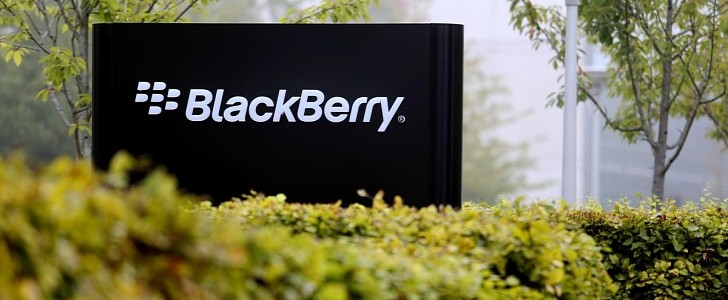Along with Microsoft and Windows Phone, BlackBerry is one of the biggest names that failed in the mobile industry, despite the company still struggling to remain relevant with more or less outdated Android devices.
While the Canadians are now working on another “modern” Android device with a QWERTY keyboard, the company is also trying to explore other markets, including the automotive one.
What BlackBerry wants to do is compete against the likes of Android and Linux to power the driving experience on electric vehicles, so most recently, it signed a deal with Desay SV Automotive to build the autonomous driving domain controller for the Xpeng P7 built by Xpeng Motors.
In other words, BlackBerry will bring in the necessary operating system, Desay will contribute with the automatic driving control unit, called IPU-03, and together they plan to offer a unique driving experience in the Chinese electric vehicle.
One of the best things about QNX is that it’s fully focused on security, something that has been part of BlackBerry’s DNA for many years already.
At a time when cars are getting smarter thanks to the addition of latest-generation technology, investing in software security for the automotive industry should become a priority. And BlackBerry appears to know this very well, so it hopes that QNX would eventually be the platform of choice for more automakers.
As for the intelligent driving system in the Xpeng P7, it uses only the latest-generation hardware, including the NVIDIA Xavier platform, which is supposed to read and analyze data from sensors faster than competing products.
“The NVIDIA Xavier platform has a computing capacity of up to 30 trillion operations per second (TOPS), making it capable of processing massive data input from the vehicle’s various sensors, including radars, cameras, lidar and ultrasonic systems, in real time and running algorithms such as perception, positioning, planning, and control without delay,” BlackBerry says in a press release.
What BlackBerry wants to do is compete against the likes of Android and Linux to power the driving experience on electric vehicles, so most recently, it signed a deal with Desay SV Automotive to build the autonomous driving domain controller for the Xpeng P7 built by Xpeng Motors.
In other words, BlackBerry will bring in the necessary operating system, Desay will contribute with the automatic driving control unit, called IPU-03, and together they plan to offer a unique driving experience in the Chinese electric vehicle.
One of the best things about QNX is that it’s fully focused on security, something that has been part of BlackBerry’s DNA for many years already.
At a time when cars are getting smarter thanks to the addition of latest-generation technology, investing in software security for the automotive industry should become a priority. And BlackBerry appears to know this very well, so it hopes that QNX would eventually be the platform of choice for more automakers.
As for the intelligent driving system in the Xpeng P7, it uses only the latest-generation hardware, including the NVIDIA Xavier platform, which is supposed to read and analyze data from sensors faster than competing products.
“The NVIDIA Xavier platform has a computing capacity of up to 30 trillion operations per second (TOPS), making it capable of processing massive data input from the vehicle’s various sensors, including radars, cameras, lidar and ultrasonic systems, in real time and running algorithms such as perception, positioning, planning, and control without delay,” BlackBerry says in a press release.











